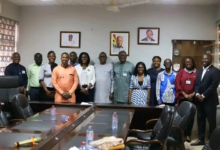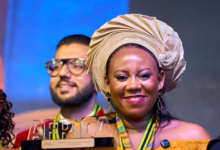
Twenty-five out of the 27 political parties have flouted the Electoral Commission (EC) law, an audit from a list of 27 political parties which were listed on the EC register last year, has revealed.
In the Political Parties Act (574) passed in 2000 under section 51(1), it was stipulated that “within ninety days after the issue of a final certificate of registration, a political party shall furnish the EC with details of the existence and location of its national, regional, district and constituency offices” in order to have a national character and appeal.
The Act further in clause (3) under the same section 15 stated the EC has the authority to cancel the registration of any political party if it fails to adhere to the directive.
The EC is yet to officially remove any political party from its list of register after a nationwide audit revealed that only the New Patriotic Party (NPP) and the National Democratic Congress (NDC) are the only two which have met the EC’s political party’s requirement.
However, the Ghanaian Times have learnt that the reason for the Commission’s inability to crack the whip to delist the offending parties was not known but the source further disclosed that as at 2012, there were about 30 political parties registered on the EC list, but the number was reduced to 25 by 2018 just for two new parties Power Unity Party (PUP) and the Ghana Union Movement (GUM) to come on board last year for the add up to 27.
According to the source, mergers and inactivity by some parties was the main course of the reduction in the numbers since Ghana took to multi-party democracy in 1992.
The parties on the list of the EC from the source indicated that apart from NDC, NPP, PUP and GUM which names have been mentioned earlier in the report other political parties were Convention People’s Party (CPP), People’s National Convention (PNC), Great Consolidated Popular People’s Party (GCPP), Democratic People’s Party (DPP), Every Ghanaian Living Everywhere (EGLE), Reform Patriotic Democrats (RPD), Ghana National Party (GNP), New Vision Party (NVP), United Liberal Party (ULP), United Democratic System Party (UDSP), Progressive People’s Party (PPP), Ghana Freedom Party (GFP), National Democratic Party (NDP) and All People Party (ACP).
Also included on the list were Unity People’s Party (UPP), Liberals People’s Party (LPP), Yes People’s Party (YPP), National Reform Party (NRP), United Ghana Movement (UGM), United Renaissance Party (URP), Democratic Freedom Party (DFP) and Ghana Democratic Republican Party (GDRP).
Some parties which have disappeared on the list in this era of 4th Republican democratic dispensation were Independent People Party, Reformed Patriotic Democrats (RPD), Reformed Patriotic Democrats (RPD), United Renaissance Party URP) and Ghana’s Redevelopment Party (GRP).
Some mergers which created the space for some parties to miss out on the list included the National Independence Party (NIP) merging with Peoples Heritage Party (PHP) to form People’s Convention Party (PCP) in 1993. However, in 1996 the PCP later merged with the National Convention Party, both from Nkrumah’s Ideology tradition to form the Convention People’s Party (CPP) which was originally formed in 1949 but was banned from participating in any election after the overthrow of Dr Kwame Nkrumah in 1966.
In an interview with Dr Serebour Quaicoe, Director of Electoral Service at the EC to know when the parties who could not satisfy Article 574 would be sanctioned by striking off their names on the list with the EC, he said although he was aware that some of the inactive parties have served notice to the E.C to be dormant for a while, the decision to remove a party’s name from the register was sole prerogative of the commissioners who by law are mandated to come out with policies with regards to issues of this nature.
He said the EC would in due course and at the appropriate time announce when and how the political parties aspirants would pick and submit their nomination forms and monies to be paid by both presidential and parliamentary aspirants adding that the modalities for qualification to participate in the year’s general election would then be spelt out according to the dictates of the law.
Dr Quaicoe said any payment from the parties which would be allowed to contest the elections would be refunded back to them depending on the number of votes they get after the election saying that, “for presidential candidates, they need to get 25 per cent of the total valid votes while parliamentary candidates would only receive their cash if they are able to also get 12.5 per cent of the votes”.
He said the law was very clear that in the absence of the candidates’ inability to rally the needed percentage the monies would be paid into government chest by crediting them into the consolidate fund.
It would be recalled that recently, Nigeria’s electoral commission deregistered 74 political parties in the country from failing to meet several constitutional requirements.
Nigeria, currently has 18 officially recognised political parties out of the previously 74 parties on its register.
BY LAWRENCE MARKWEI





